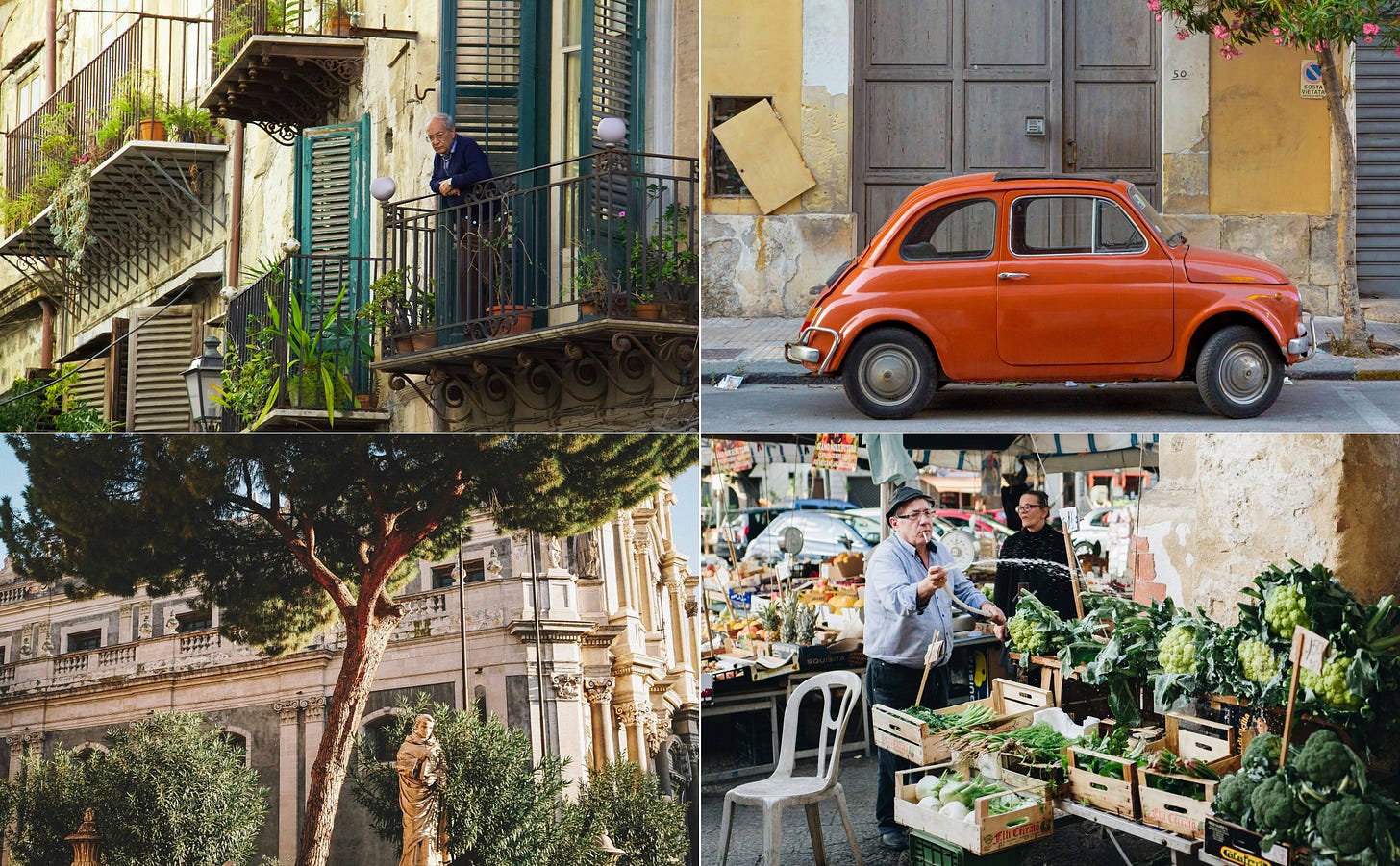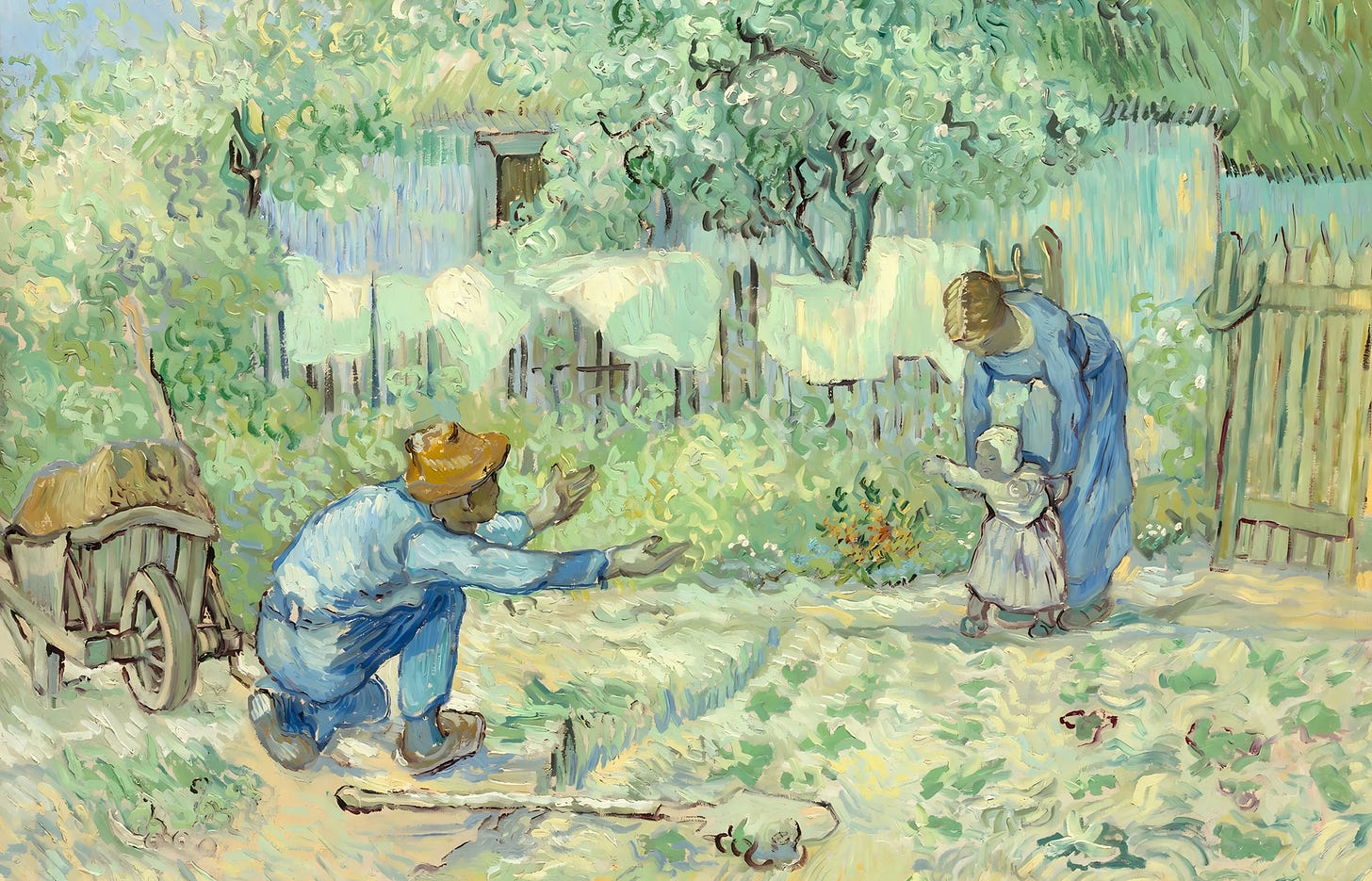Hello friends,
Welcome to Episode #2 of the The Sovereign Artist series.
I “wasted” plenty of time lately studying art in a rather casual fashion; here’s a painting by Van Gogh which gave birth to the 1st aphorism of this episode:
Here are 3 aphorisms, 1 short essay, 3 insights, and 1 question for you to reflect on.
3 Aphorisms
I.
A life of endless optionality is a life devoid of responsibility—precisely what enables freedom. Freedom starts with optionality and materializes with commitment.
II.
Love buys you time; reading helps you travel in time; play makes you forget about time; meditation teaches you to control time; and employment wastes your time.
III.
Discipline and creativity are impossible without curiosity.
Those who fail to get creative or build discipline don’t know where to shop.
Creativity and discipline aren’t primary products; they’re by-products of genuine curiosity.
Curiosity gives work meaning and guidance, which in turn give creativity and discipline reasons to show up.
Whenever you struggle to build habits or get excited,
Follow your curiosity and see what happens.
H/T
The Sicilian Dream
IT’S LATE MORNING and I’m walking the narrow streets of Catania, Sicily, together with my future wife. At some point, we decide to get a coffee and admire the scene. Even though it’s an ordinary day in November—I recall it was Tuesday—the place permeates with attitude.
There are almost no tourists in sight. The architecture has a scruffy elegance. There’s laundry hanging from the windows. Children are playing football. Four Sicilian middle-aged men, sitting on the table in front of their butcher, are talking loudly while eating some raw meat.

We finish our coffee and then move toward Piazza del Duomo. In the southwest corner of the square, there’s an entertaining scene, full of singing salesmen. Shouting and gesticulating, they try to get the buyers’ attention with fresh fish, seafood, fruit, and veg stalls, as well as cheese and mushrooms from the mountain villages around Etna. The area is hectic, wet, dirty, and smelly.
The workday ends soon after we get there; people instantly gather at their favorite hangouts. We try to blend in with the locals, entering a taverna. We order Involtini di Pesce Spada and one bottle of wine some chatty fellows recommend.
In Sicily, I learned that even top managers working for large companies aren’t impressive—no matter how much money they make. Among Sicilians, the goal is to be free and self-employed.
3 Insights
I.
Arthur Schopenhauer on how to deal with envious people:
“Tell suspected enviers some good news about yourself—a promotion, a new and exciting love interest, a book contract. You will notice a very quick expression of disappointment. Their tone of voice as they congratulate you will betray some tension and strain.”
He adds: “Equally, tell them some misfortune of yours and notice the uncontrollable microexpression of joy in your pain, what is commonly known as schadenfreude. Their eyes light up for a fleeting second. People who are envious cannot help feeling some glee when they hear of the bad luck of those they envy. If you see such looks in the first few encounters with someone, be on the lookout for a dangerous envier entering your life.”
II.
The Italian philosopher Umberto Eco was asked:
You’re one of the most famous intellectuals in the world. How would you define the term? Does it hold any meaning to you?
“If by intellectual you mean somebody who works only with his head and not with his hands, then the bank clerk is an intellectual and Michelangelo is not. By that definition, today, with a computer—everybody is an intellectual. So I don’t think it has anything to do with someone’s profession or with someone’s social class. According to me, an intellectual is anyone who is creatively producing new knowledge. A peasant who understands that a new kind of graft can produce a new species of apples—this represents an intellectual activity. Whereas the professor of philosophy who all his life repeats the same lecture on Heidegger doesn’t amount to an intellectual. Critical creativity—criticizing what we are doing or inventing better ways of doing it—is the only mark of intellectual function.”
III.
Visualize this: you managed to build a profitable online business. You now have the freedom to work whenever and wherever you want. You only need a laptop and an internet connection.
This “flex” has a dark side…
wrote:“The ability to work whenever and wherever you want means the ability for work to infiltrate all corners of your life. This is what happened to me when I moved to Montana: the time I used to spend commuting into Manhattan—which I thought I’d allocate to hikes and kayaking and cross-country skiing—was simply absorbed by more work.”
She keeps going: “I got stuck in a technological purgatory. Consider that every one of us now keeps a tiny supercomputer in our pockets everywhere we go. Work can thus find us in every moment. On the subway. On the chairlift. On the running trail. Or even in the bathroom. Our technological devices purport to chip away at the messy inefficiencies of everyday life. Increased efficiency means more of the most precious commodity: time. But time for what, exactly? Usually, to do more work.”
1 Question
Q: If you got fired today and they brought in someone exceptional to replace you, what do you think they would do? Why aren’t you doing that?
H/T Shane Parrish
Wrapping up…
Hope you liked this episode!
Any feedback, suggestion, or criticism is welcome.
Thank you for your time,
Vizi Andrei
Host of The Sovereign Artist (Program)




